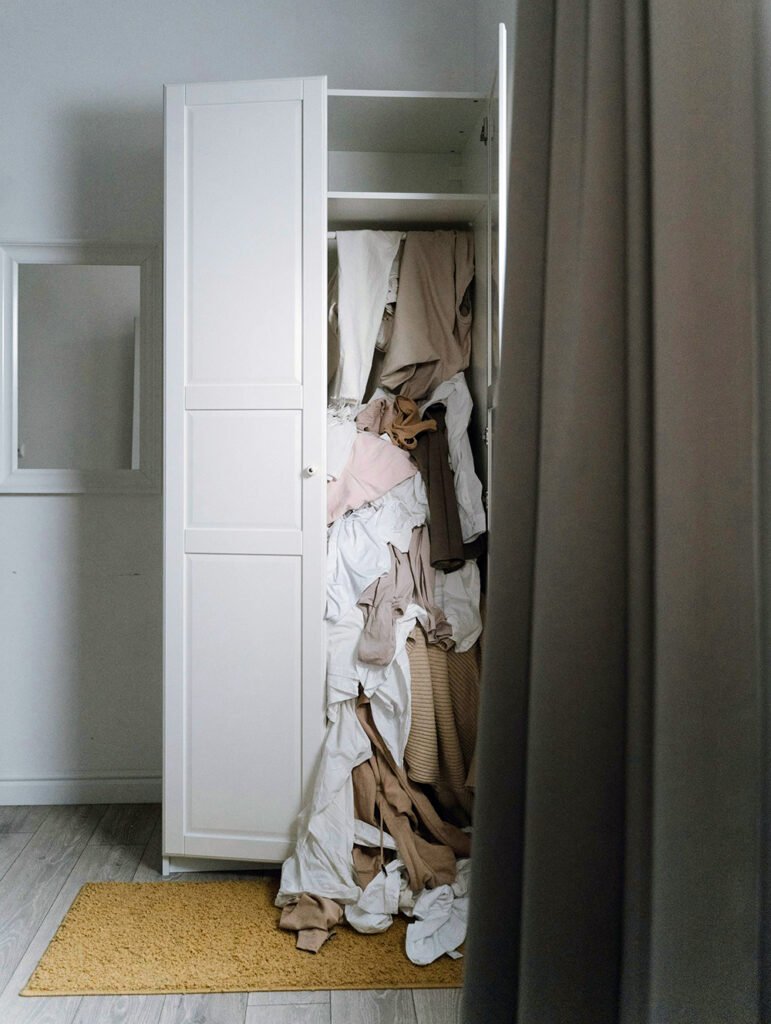As many of you who follow Mommy Sigrid on social media know, I have been crazy about “decluttering” for the last two years. It is no longer a spring cleaning gig but an all-year-round event to clean up our living space and the entire 3-story property, which was part of my mourning and healing process when we prematurely lost my parents-in-law to COVID. Spring cleaning is indeed more than just a seasonal chore—it’s an opportunity to refresh your living space and boost your mental well-being. Decluttering and deep cleaning your home can have profound effects on your mood, stress levels, and overall mental health. Here are the reasons why spring cleaning is beneficial for your mind and how you can make the most of it.

How I Got to Declutter?
I stopped being emotional about things and have learned to let go because there is just so much stuff lying around.
Moreover, I have learned to drop the thought. “I can still use this.” I changed it to, “If I need something, I will just buy.” This mindset has enabled me to let go of boxes of stuff that I have mentally labeled as, “Things I Might Be Able to Use in the Future.”
I found joy in seeing open spaces and fewer things.

“I found joy in seeing open spaces and fewer things.” ~ Mommy Sigrid
Benefits of Spring Cleaning for Mental Health
I have upcycled, recycled, sold, and thrown so many things already that I feel like I can already write a book about decluttering. But for now, because we just welcomed Chinese New Year, I am writing about the benefits of spring cleaning for mental health.
1. Reduces Stress and Anxiety
A cluttered home can contribute to stress and anxiety. When your living space is messy, it can feel overwhelming and make it harder to focus. Studies suggest that an organized and clean environment helps lower cortisol levels, the hormone associated with stress. Tidying up creates a more serene atmosphere that promotes relaxation and peace of mind.
2. Boosts Productivity and Focus
Too much clutter can be distracting and make it difficult to concentrate. Whether you work from home or just need a peaceful space to unwind, an organized home enhances productivity. Spring cleaning allows you to eliminate unnecessary items, streamline your environment, and create a more efficient space where you can focus on your goals.
3. Enhances Mood and Motivation
Cleaning and organizing can be therapeutic. The physical activity involved releases endorphins, the body’s natural mood boosters, helping to combat feelings of sadness or lethargy. Completing a deep clean also gives you a sense of accomplishment, which can be highly motivating and uplifting.
4. Encourages Mindfulness
Spring cleaning requires attention to detail and can be a form of mindfulness. Focusing on one task at a time—whether it’s scrubbing floors, decluttering a closet, or dusting shelves—allows you to be present in the moment. This practice helps reduce negative thoughts and fosters a sense of calm.
5. Improves Sleep Quality
A clean and organized bedroom can improve your sleep quality. Studies show that people who sleep in tidy spaces experience better rest compared to those in cluttered environments. Freshly washed sheets, a dust-free room, and an organized space contribute to a more restful night’s sleep, which is essential for mental health.
6. Provides a Sense of Control
When life feels chaotic, cleaning offers a sense of control and stability. Organizing your space gives you immediate, visible results, reinforcing a feeling of accomplishment. This can be particularly beneficial during times of uncertainty, as it creates a structured and predictable environment.
7. Promotes a Healthier Lifestyle
A clean home often leads to healthier habits. When your kitchen is organized, you’re more likely to prepare nutritious meals. A decluttered home can also motivate you to engage in self-care activities, such as yoga, meditation, or exercise, all of which contribute to better mental well-being.
Things in the Home That You Need to Let Go
Decluttering is an essential part of spring cleaning, and some items in your home might be doing more harm than good. Here are a few things you should consider letting go:
- Old Clothes: If you haven’t worn an item in over a year, it might be time to donate it.
- Expired Medications and Toiletries: Keeping outdated products can be unsafe and take up valuable space.
- Broken or Unused Electronics: Old chargers, phones, and gadgets that no longer serve a purpose should be recycled properly. You can include the boxes of your first few mobile phones, too.
- Paper Clutter: Bills, receipts, and documents that are no longer needed should be shredded or filed digitally.
- Mismatched Kitchenware: Extra mugs (also mugs with broken handles), old Tupperware, mismatched storage containers, and unused utensils contribute to unnecessary clutter.
- Sentimental Clutter: While it’s okay to keep a few meaningful items, holding onto everything can become overwhelming. Consider keeping only those with the most significance.
- Packaging: Many people collect cute packaging. But if you are not careful, the collection can grow and occupy an entire room!
- Unused or Worn-Out Linens: Towels, sheets, and blankets that have seen better days should be repurposed or replaced.

Read: 4 Tricks to Make Your Home Cozy for Kids
How to Make Spring Cleaning More Enjoyable
Many people do not like decluttering because it is such a dull chore. Here are some things you can do to make it enjoyable and sustainable.
- Start Small: Focus on one area at a time to avoid feeling overwhelmed.
- Use a Checklist: Break tasks into manageable steps to stay on track.
- Play Music or Podcasts: Enjoy your favorite tunes or listen to an inspiring podcast while cleaning.
- Declutter Mindfully: Donate or repurpose items you no longer need instead of holding onto clutter.
- Reward Yourself: Celebrate progress with a small treat, like a relaxing cup of coffee or a favorite book. If you sell some preloved stuff, the money you earn could also be your reward. List down your sales so that you can better appreciate how much money you have earned from decluttering.
Spring cleaning isn’t just about maintaining a neat home—it’s about creating a space that supports your mental health. By decluttering, organizing, and freshening up your surroundings, you cultivate a sense of calm, clarity, and well-being. So grab your cleaning supplies, put on some music, and enjoy the mental benefits of a refreshed home this spring!

